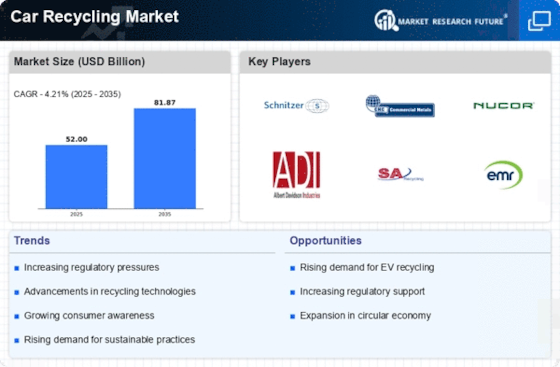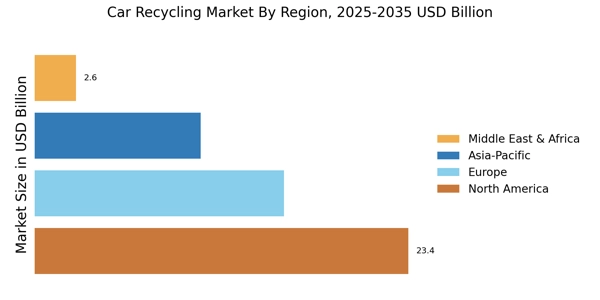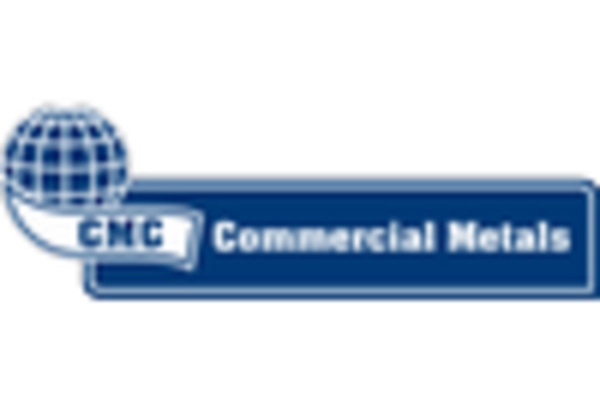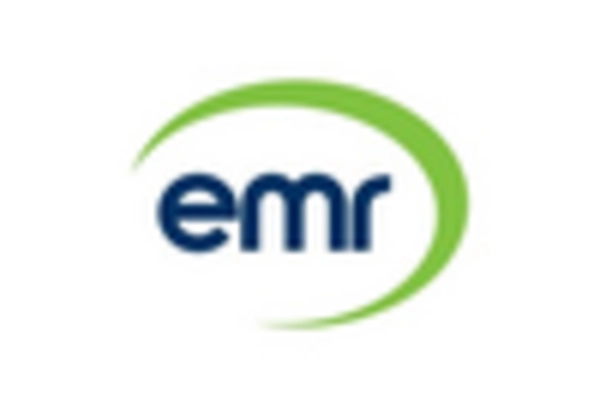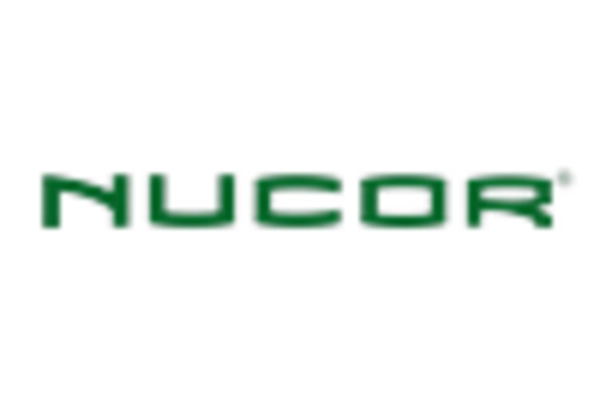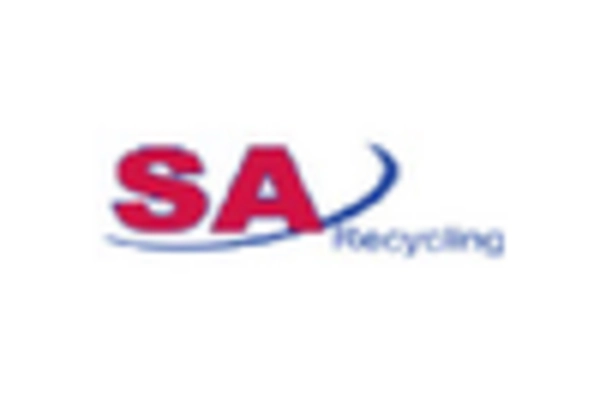Regulatory Frameworks and Compliance
The Car Recycling Market is significantly influenced by stringent regulatory frameworks aimed at promoting sustainable practices. Governments worldwide are enacting laws that mandate the recycling of vehicles and the proper disposal of hazardous materials. For example, regulations such as the End-of-Life Vehicles Directive in various regions require manufacturers to ensure that a certain percentage of their vehicles are recycled. Compliance with these regulations not only fosters environmental responsibility but also opens up new business opportunities for recycling companies. The increasing focus on environmental sustainability is likely to propel the Car Recycling Market forward, as companies strive to meet regulatory requirements while also appealing to eco-conscious consumers. This regulatory landscape may create a competitive advantage for those who adapt swiftly to these changes.
Rising Demand for Recycled Materials
The Car Recycling Market is witnessing a growing demand for recycled materials, driven by the automotive sector's shift towards sustainability. As manufacturers seek to reduce their carbon footprint, the use of recycled metals and plastics in vehicle production is becoming more prevalent. Reports indicate that recycled aluminum can save up to 95% of the energy required to produce new aluminum, making it an attractive option for automakers. This trend not only supports the Car Recycling Market but also aligns with the broader movement towards a circular economy. The increasing preference for sustainable materials among consumers further fuels this demand, suggesting that the Car Recycling Market is poised for substantial growth as it meets the needs of both manufacturers and environmentally conscious buyers.
Economic Incentives and Market Growth
The Car Recycling Market is benefiting from various economic incentives that encourage recycling practices. Governments and organizations are implementing programs that provide financial support for recycling initiatives, such as grants and tax breaks for companies that invest in sustainable technologies. These incentives not only lower operational costs for recycling facilities but also stimulate market growth by attracting new entrants. Additionally, the rising prices of raw materials are making recycled materials more competitive, further enhancing the appeal of the Car Recycling Market. As economic conditions evolve, the potential for growth in this sector appears promising, suggesting that stakeholders who capitalize on these incentives may find themselves at a distinct advantage in the marketplace.
Technological Innovations in Car Recycling
The Car Recycling Market is experiencing a surge in technological innovations that enhance recycling processes. Advanced techniques such as hydrometallurgy and pyrometallurgy are being adopted to recover valuable materials from end-of-life vehicles. These methods not only improve efficiency but also reduce environmental impact. For instance, the implementation of automated sorting systems has been shown to increase material recovery rates by up to 30%. Furthermore, the integration of artificial intelligence in recycling facilities allows for better decision-making and optimization of resource allocation. As these technologies continue to evolve, they are likely to drive growth in the Car Recycling Market, making it more sustainable and economically viable. The potential for innovation in this sector appears vast, suggesting a promising future for stakeholders involved.
Consumer Awareness and Environmental Concerns
The Car Recycling Market is being propelled by heightened consumer awareness regarding environmental issues. As individuals become more informed about the impact of waste on the planet, there is a growing inclination towards sustainable practices, including vehicle recycling. Consumers are increasingly seeking out companies that prioritize eco-friendly operations, which in turn encourages automakers to adopt responsible recycling practices. Surveys indicate that a significant percentage of consumers are willing to pay a premium for vehicles that are recyclable or made from recycled materials. This shift in consumer behavior is likely to drive demand within the Car Recycling Market, as businesses adapt to meet these expectations. The interplay between consumer preferences and environmental responsibility may lead to innovative solutions and partnerships within the industry.


